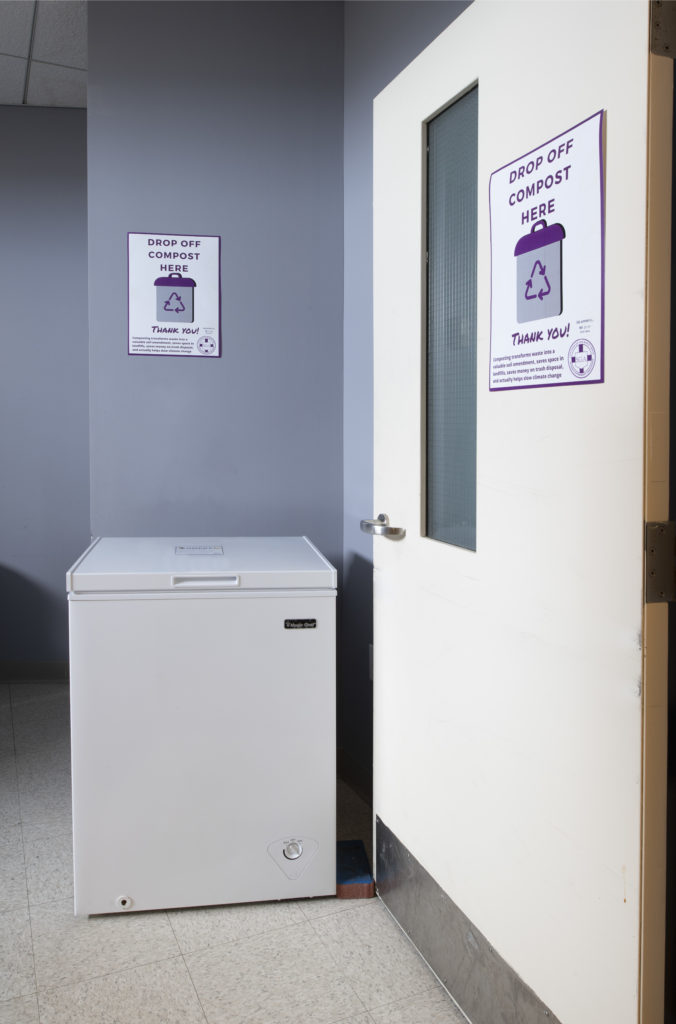
Even with careful thought and passionate execution, some sustainability projects take more than one trial to get right. For instance, the innovative freezer system used at Williams Hall and Figge Hall took over two years to develop. During the first attempt, the Student Government Association co-directors of environmental concerns and Presidential Task Force on the Environment members installed an aerated static pile composting system right outside the two buildings. However, student residents solemnly participated because the system was located outdoors. Possibly worse, the Facilities Department received complaints about bad odors. The implementation team decided to conclude this first attempt and pivot the project to a different model.
Today, student residents at Figge Hall and Williams Hall may successfully compost their food waste through a compact freezer system. Instead of traditional indoor collection bins, students will find small freezers at the collection zones. These freezers require less frequent pickup and provide flexibility for changing demand. They also mitigate icky smells and increase user convenience. When students have food waste to discard, they simply place their waste in a bag into the freezer. An Environmental Services staff member then removes the waste and brings it to the compost compactor located near Kimball Hall. Holy Cross’ hauler, Waste Management, picks up the organic waste and turns it into rich soil.
While some projects happen rapidly, many others take time, trial and perseverance to implement. The freezer composting system at Figge Hall and Williams Hall exemplifies this process.

